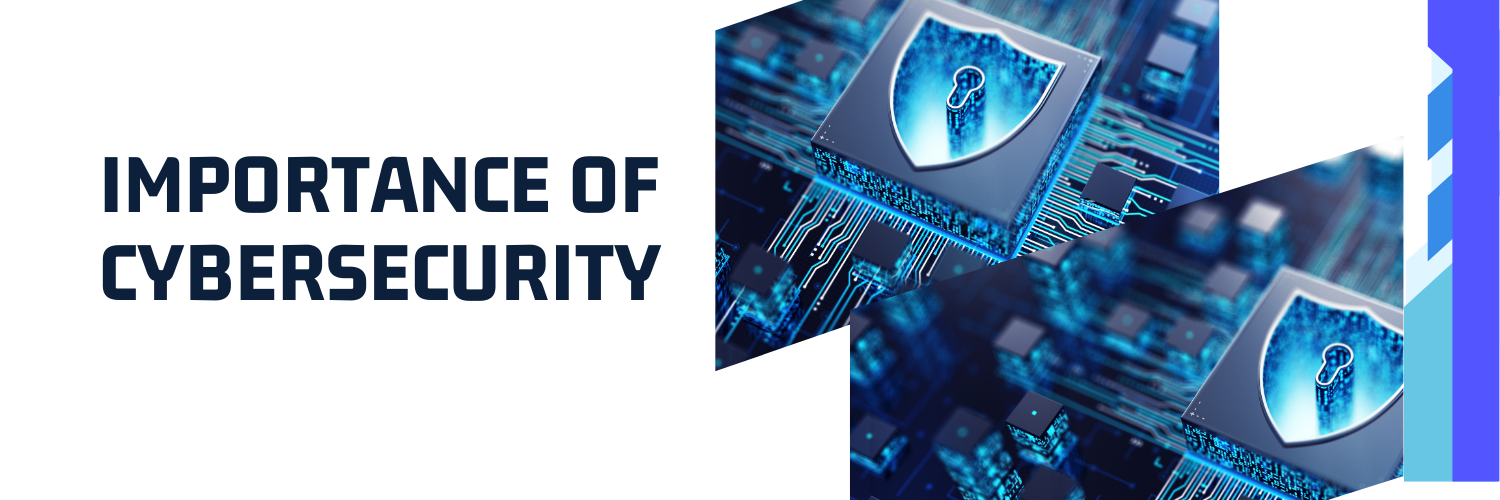The rise of technology has changed how we live and work, but it has also made us more vulnerable to cyber threats. From personal data to big company systems, cyberattacks are becoming more common and harder to stop. This has created a huge demand for professionals who know how to protect digital information.
For students studying Bachelor of Computer Applications (BCA), learning cybersecurity has become essential. As businesses and organizations rely more on digital platforms, the need to keep their systems safe is more important than ever. To meet this demand, BCA programs are adding cybersecurity to their courses, helping students gain the skills they need to protect data and stop cyber threats.
In this blog, we’ll explore why cybersecurity is becoming a key part of BCA programs and how it sets students up for success in a fast-growing career field.
Why Cybersecurity Matters More for BCA Students
Cyberattacks have become more advanced and frequent, affecting organizations of all types. From data breaches and ransomware to phishing and malware, no one is entirely safe. In 2023, numerous large corporations, government bodies, and even educational institutions experienced significant cyberattacks, leading to massive financial losses. This clearly shows the need for experts who can prevent, identify, and address these dangers. For BCA students, gaining an understanding of these threats is essential. By studying cybersecurity, they learn how to protect systems, networks, and data from unauthorized access and malicious activity. As the world becomes increasingly dependent on digital technologies, cybersecurity will be a vital skill for BCA graduates.
The Growing Cyber Threats We Face
Cyberattacks are becoming more sophisticated and frequent. Businesses of all sizes are targeted by hackers who seek to steal sensitive data or disrupt operations. This increase in cyber threats has highlighted the need for skilled cybersecurity professionals who can effectively guard against these attacks. With incidents such as data breaches, ransomware attacks, and phishing scams making headlines, it’s clear that cybersecurity expertise is in high demand. Understanding these threats and learning how to counteract them is crucial for BCA students preparing for the future.
Adding Cybersecurity to BCA Courses
BCA programs have traditionally focused on topics like software development, database management, and networking. However, with the growing number of cyber threats, many colleges are now making cybersecurity a key part of their courses. This includes subjects like cryptography, ethical hacking, network security, and risk management. Today, several BCA programs offer specialized paths in cybersecurity, giving students hands-on experience in protecting digital systems. These courses teach important skills such as encryption, setting up firewalls, assessing vulnerabilities, and secure coding—all of which are highly valued in many industries.
Certifications and Hands-On Experience in Cybersecurity
Beyond classroom learning, many BCA programs encourage students to earn industry-recognized cybersecurity certifications. Certifications such as Certified Ethical Hacker (CEH), CompTIA Security+, and Certified Information Systems Security Professional (CISSP) add great value to a student’s resume and show their expertise in the field. Additionally, BCA programs often include internships and project work that tackle real-world cybersecurity challenges. Students get hands-on experience by working on live projects, simulating cyberattacks, and designing security systems. This practical training not only boosts their confidence but also helps them connect academic knowledge with the actual needs of the industry.
The High Demand for Cybersecurity Jobs
One of the main reasons cybersecurity is becoming a key focus in BCA programs is the strong demand for professionals in the field. A report by Cybersecurity Ventures predicts that by 2025, there will be 3.5 million unfilled jobs in cybersecurity worldwide. Industries like finance, healthcare, e-commerce, and IT services are all actively looking for cybersecurity experts to protect their digital systems. For BCA graduates, specializing in cybersecurity opens up many career paths, such as:
- Security Analyst: Monitoring networks for security threats and investigating incidents.
- Penetration Tester (Ethical Hacker): Testing systems for weaknesses by simulating cyberattacks.
- Security Consultant: Providing advice on security practices and creating defense strategies.
- Incident Responder: Handling security breaches and minimizing the damage caused by cyberattacks.
- Cryptographer: Developing encryption methods to secure sensitive information.
As the need for cybersecurity professionals continues to rise, this field offers a promising and growing career option for BCA graduates.
Cybersecurity and the Future of Digital Technology
As businesses embrace digital transformation, with technologies like artificial intelligence, the Internet of Things (IoT), and cloud computing becoming central to operations, cybersecurity becomes more important than ever. BCA students with cybersecurity skills will be better equipped to understand the security risks tied to these technologies and apply the right protections. For example, while IoT devices offer great convenience, they are also highly vulnerable to cyberattacks because they are all connected. Similarly, cloud services can face data breaches if not properly secured. BCA graduates who focus on cybersecurity will play a crucial role in safeguarding these systems as companies adopt more digital solutions.
Understanding Ethics and Laws in Cybersecurity
A key part of cybersecurity education is learning about ethical standards and legal requirements. Cybersecurity isn’t just about stopping attacks; it also involves following ethical guidelines and understanding laws. BCA students are taught the importance of privacy, data protection laws like the General Data Protection Regulation (GDPR), and the ethical challenges faced by cybersecurity experts. This knowledge is crucial in today’s global world, where data often crosses borders and international collaborations are frequent. BCA programs that focus on cybersecurity help students grasp the wider impact of their work and the responsibility they have in protecting digital information.
Conclusion
As cyber threats keep increasing, learning about cybersecurity in BCA programs is more important than ever. By including cybersecurity in their courses, schools are helping students get ready for the digital challenges of the future. BCA students who specialize in cybersecurity will gain hands-on skills in areas like cryptography and ethical hacking and learn about important legal and ethical issues. This preparation will help them succeed in a fast-growing and in-demand field. For students who want a secure career path, focusing on cybersecurity in a BCA program is a great choice. In a world where cyber threats are becoming more common, cybersecurity professionals will be key in protecting digital systems. Choosing the Best BCA College in Ghaziabad with a strong cybersecurity program can set you up for success in this essential and expanding field.






